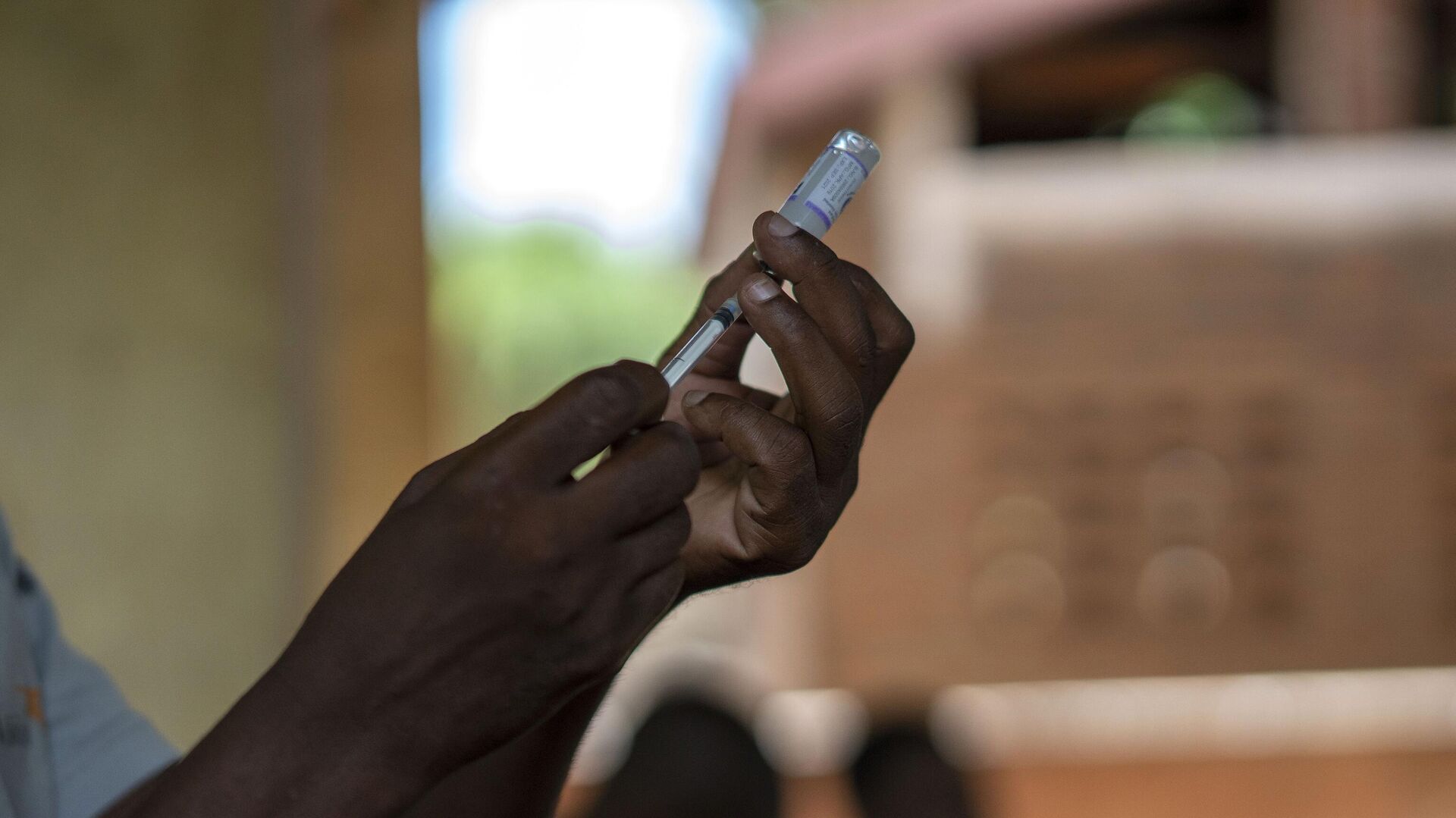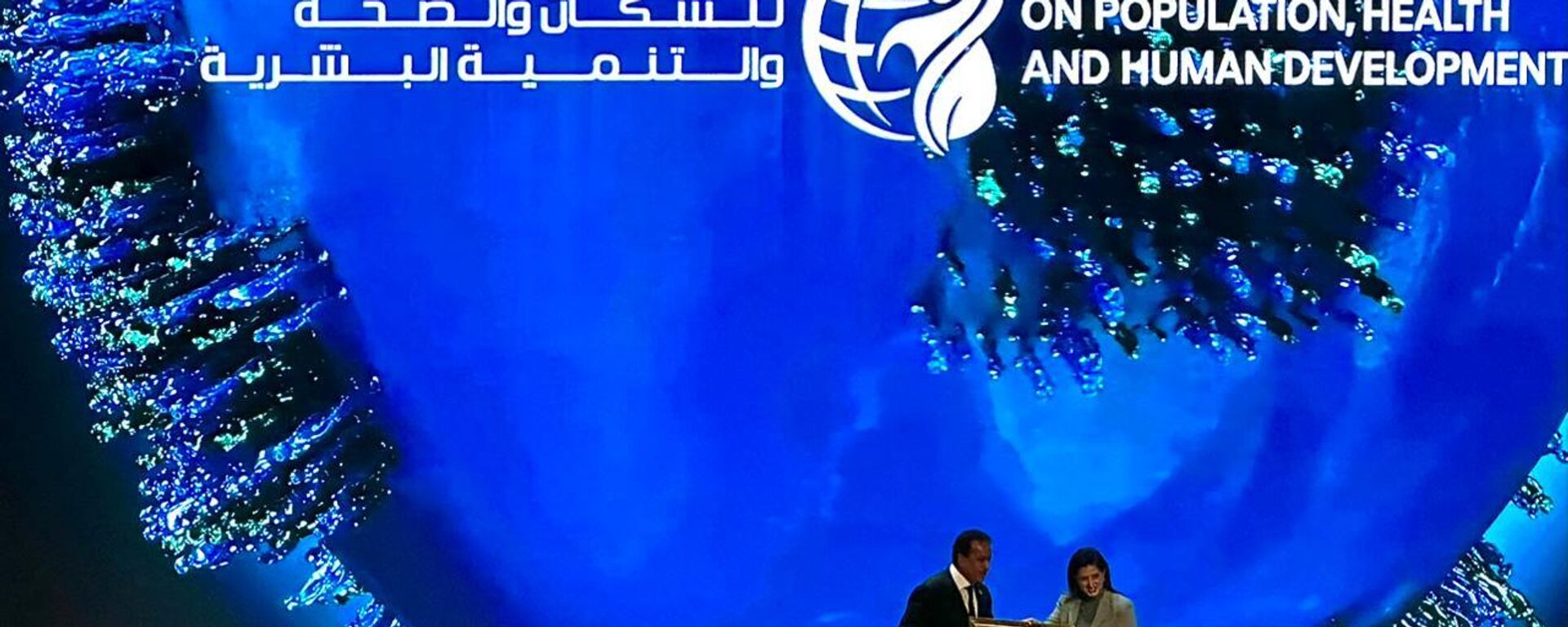https://en.sputniknews.africa/20241101/number-of-malaria-cases-in-ethiopia-reaches-its-highest-level-in-seven-years-who-says-1068980107.html
Number of Malaria Cases in Ethiopia Reaches Its Highest Level in Seven Years, WHO Says
Number of Malaria Cases in Ethiopia Reaches Its Highest Level in Seven Years, WHO Says
Sputnik Africa
Malaria caused over 600,000 deaths in 2022, with 95% of those deaths occurring in Africa and 80% in children under five, according to the WHO. Several African... 01.11.2024, Sputnik Africa
2024-11-01T14:45+0100
2024-11-01T14:45+0100
2024-11-01T15:19+0100
sub-saharan africa
east africa
ethiopia
malaria
world health organization (who)
healthcare
health
disease
vaccine
medicine
https://cdn1.img.sputniknews.africa/img/07e7/04/16/1058775607_0:0:3069:1726_1920x0_80_0_0_5094f6fe515645596b863f60737c62d4.jpg
The number of malaria cases in Ethiopia has reached its highest level in seven years, the World Health Organization said in a statement on Thursday. According to the WHO, over 7.3 million people got infected, and more than 1,100 patients have died since the beginning of 2024.The WHO underscored that malaria is a significant challenge for Ethiopia; the high risk of the disease for the inhabitants is mostly connected with food insecurity, drought and the spread of the type of mosquitoes called Anopheles stephensi. In the statement, the World Health Organization pointed out that there is no need to place any restrictions on trade with Ethiopia or traveling to this country.Earlier, the WHO, the Swiss-based global health partnership Global Alliance for Vaccines and Immunization (GAVI), the United Nations International Children's Emergency Fund (UNICEF), and the Nigerian government said in a joint statement that Nigeria received the first batch of a new malaria vaccine and is set to roll it out in Kebbi and Bayelsa states, in the country's north-west and south, where malaria prevalence is particularly high.
https://en.sputniknews.africa/20241021/who-officially-declares-egypt-malaria-free-1068790511.html
east africa
ethiopia
Sputnik Africa
feedback@sputniknews.com
+74956456601
MIA „Rossiya Segodnya“
2024
News
en_EN
Sputnik Africa
feedback@sputniknews.com
+74956456601
MIA „Rossiya Segodnya“
Sputnik Africa
feedback@sputniknews.com
+74956456601
MIA „Rossiya Segodnya“
east africa, ethiopia, malaria, world health organization (who), healthcare, health, disease, vaccine, medicine
east africa, ethiopia, malaria, world health organization (who), healthcare, health, disease, vaccine, medicine
Number of Malaria Cases in Ethiopia Reaches Its Highest Level in Seven Years, WHO Says
14:45 01.11.2024 (Updated: 15:19 01.11.2024) Malaria caused over 600,000 deaths in 2022, with 95% of those deaths occurring in Africa and 80% in children under five, according to the WHO. Several African countries, including Ghana, Nigeria, Burkina Faso, and the Central African Republic, have already approved the vaccine.
The number of malaria cases in Ethiopia has reached its highest level in seven years, the World Health Organization said in a statement on Thursday. According to the WHO, over 7.3 million people got infected, and more than 1,100 patients have died since the beginning of 2024.
"Malaria poses a significant public health challenge in Ethiopia, where approximately 75% of the land mass is considered to be endemic to malaria. Around 69% of the population residing in these areas faces the risk of infection, where periodic outbreaks contribute to up to 20% of deaths among children under the age of five," the WHO said in a statement.
The WHO underscored that
malaria is a significant challenge for Ethiopia; the high risk of the disease for the inhabitants is mostly connected with food insecurity, drought and the spread of the type of mosquitoes called
Anopheles stephensi. In the statement, the World Health Organization pointed out that there is no need to place any
restrictions on trade with Ethiopia or traveling to this country.
Earlier, the WHO, the Swiss-based global health partnership Global Alliance for Vaccines and Immunization (GAVI)
, the United Nations International Children's Emergency Fund (UNICEF), and the Nigerian government
said in a joint statement that Nigeria received the first batch of a new malaria vaccine and is set to roll it out in Kebbi and Bayelsa states, in the country's north-west and south, where malaria prevalence is particularly high.


